Last week, Iran commemorated the 20th anniversary of the chain murders case. In late 1988, the murder of a number of critics of the Iranian regime, known as the chain murders, prompted a series of official investigations. It was a move that met with widespread controversy both within the regime and in Iranian society.
The series of assassinations of Iranian dissidents and intellectuals was initiated by the Ministry of Intelligence under President Akbar Hashemi Rafsanjani. In the 1990s, ministry agents killed dozens of Iranians who they had identified as posing a danger to the Islamic Republic.
But when the murders continued into the presidency of Mohammad Khatami, it met with a sharp response from the reformist press, and later by the reformist administration. Since the beginning of Khatami’s first term, the situation for press freedom in Iran had significantly improved, leading the reformist newspapers to pursue and investigate the chain murders (although later, the Iranian conservative judiciary gradually banned all the newspapers that had pursued the case). Finally, on January 5, 1999, the Ministry of Intelligence took an unprecedented measure and announced that the perpetrators of the killings had been “rogue” members of the ministry.
Nevertheless, the ministry only acknowledged the assassination of the most recent victims of the chain murders, namely Dariush and Parvaneh Forouhar, two nationalist opposition activists, and Mohammad Mokhtari and Mohammad Jafar Pouyandeh, two dissident writers. This was in spite of the fact that, since Khatami came to power in May 1997, at least two other dissidents had been kidnapped and killed, Pirouz Davani (a Marxist activist) and Majid Sharif (a former Mujahedin-e Khalq — the People's Mojahedin Organization of Iran member).
Like the Ministry of Intelligence, Mohammad Khatami decided to limit the follow-up of murders to only the four most recent murders and not to pursue the older cases. The reason for this decision was that many Iranian high-ranking officials strongly disagreed with the pursuit of the murders because they believed it would undermine the Islamic Republic. Khatami was concerned that if the investigation into the murders went beyond certain limits, Ayatollah Khamenei would put an end to the entire process. Consequently, Khatami’s priority was preventing the continuation of the murders carried out by the agents of the Ministry of Intelligence, as well as not going too deep when trying to identify the origins of the crimes.
Given such circumstances, the then minister of intelligence, Ghorbanali Dorri Najafabadi, resigned on February 10, 1999, under pressure from Mohammad Khatami. In Iran, the Minister of Intelligence is a member of the government cabinet, but the president can only nominate a minister, who then needs to be vetted by the Leader. It is said that Dorri Najafabadi, a conservative cleric, was Khatami’s fourteenth candidate for the Ministry of Intelligence; all his other candidates did not survive the vetting process.
The Interference of Ayatollah Khamenei
Three days after the Ministry of Intelligence acknowledged the involvement of the ministry’s agents in the murders, Ayatollah Khamenei said "it was not possible" that the assassinations could happen "without a scenario led from abroad.”
A short time before and after Khamenei’s remarks, four members of the Ministry of Intelligence, Mostafa Kazemi, Mehrdad Alikhani, Khosrow Barati and Saeed Emami, were arrested. Many more agents or associates of the ministry were arrested in the coming months. Saeed Emami had been the deputy minister for domestic security affairs under the Rafsanjani administration. He was also a confidante of Ayatollah Khamenei. In 1990, Emami accompanied Khamenei’s wife and family during a medical trip to London.
Five months after his imprisonment, on June 19, 1999, the judiciary announced that Saeed Emami had committed suicide. However, many reformist (and some conservative) analysts have always believed that he was killed. They argue that Saeed Emami was liquidated because he was in possession of a large amount of information about state officials who were involved in the murders.
Five days after the death of Saeed Emami, Ayatollah Khamenei reportedly said in a closed meeting of Iran’s senior officials that, regardless of the outcome of the investigations, he was absolutely certain that the perpetrators of the murders were connected to foreign countries.
In September 1999, Saeed Emami’s wife and a number of other individuals who were not connected to the assassinations were also arrested on charges of being involved in the murders. The new arrests were accompanied by the leak of unofficial (baseless) information about the detainees’ “confessions” of espionage and sexual misconduct.
At the same time, the judiciary issued public communiqués stating the detainees had confessed to crimes against national security. The confessions were linked to the detainees’ alleged connections to the United States and Israel, their so-called terrorist plots to kill Islamic Republic officials, and to other questionable allegations.
The Khatami administration's Intelligence Ministry, however, did not confirm the accuracy of these allegations. Later, in July 2002, Ali Younesi, the Khatami administration’s new minister of intelligence, said that the judiciary was in charge of interrogating the detainees and extracting confessions.
Behind the Scenes of the Confessions
In February 1999, the judiciary unveiled a six-hour video regarding the confessions of six defendants in the chain murders case in which they admitted they had connections to Mossad and the CIA. The video was screened in separate meetings, behind closed doors, for Ayatollah Khamenei, the heads of the three branches of the government and then for the members of the parliament.
These confessions were, in fact, meant to prove the accuracy of the Leader’s prediction about the perpetrators’ foreign links.
In response to this film, in June 2001, intelligence agents close to the reformists leaked a three-hour film about the interrogation process of Saeed Emami’s wife and several other detainees. This video was sent to the president and the head of the judiciary and then posted on the internet. The film highlighted the intense torture these detainees endured, which was carried out to extract absurd confessions regarding actions they had taken against the Islamic Republic, links to foreign intelligence services and widespread sexual corruption (including incest).
After this exposure, which resulted in the derailment of the case based on the proof that the confessions were fabricated, Mohammad Khatami insisted on making the interrogation team accountable — and the members of this team and their head, Javad Azadeh, were arrested.
When asked why the detainees were tortured to extract false confessions, Azadeh reportedly gave an answer that clearly explained the manner in which the judiciary had dealt with the murders case. He said that when the Leader emphasized that the perpetrators of the murders were undoubtedly linked to foreign governments, the interrogators’ religious and professional duty became clear: to torture the detainees to confess that they were corrupt individuals who worked for foreign agencies, so that the Leader’s suggested scenario was proven.
Javad Azadeh and his colleagues were released after a short time.
The Court’s Verdict
In 1998, in total, 23 Ministry of Intelligence agents were arrested for their involvement in the murders.
The court sessions were held from December 2000 to January 2001 behind closed doors and in the absence of the lawyers or family members of the victims. After 12 secret sessions, in January, the court issued indictments for the 18 convicts.
According to the indictment, four members of the Ministry of Intelligence were sentenced to life imprisonment for commissioning the murders to the ministry’s operation teams. In addition, three agents were sentenced to death for committing the murders, although the families of the victims later said they disagreed with the death penalty for retaliation (qisas in sharia law). As a result, the court condemned each of these three convicts to 10 years in prison. Other convicts were sentenced to two and a half to eight years in prison for being involved in the murders, while three detainees were acquitted. The sentences of the perpetrators were finalized in the appeal court on November 29, 2002.
According to reliable sources in Iran, the four convicts who were sentenced to life imprisonment have all been released and went on to engage in business activities.
In the end, it would appear that, despite the lack of a transparent and fair trial by the judiciary, Mohammad Khatami's and the reformist press’ pursuit of the chain murders stopped the Ministry of Intelligence carrying out similar murders – at least until the end of the Khatami presidency.
However, after the follow-up of the 1998 chain murders, individuals affiliated with other military security forces committed new assassinations in Iran, a review of which requires a separate occasion.
visit the accountability section
In this section of Iran Wire, you can contact the officials and launch your campaign for various problems




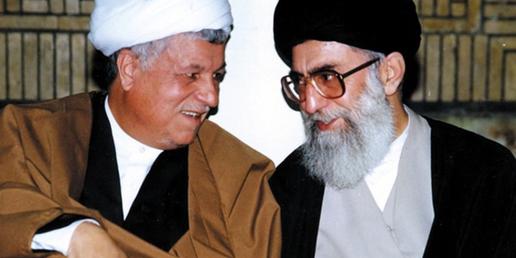
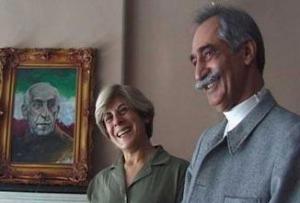
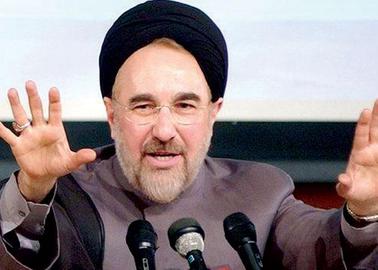
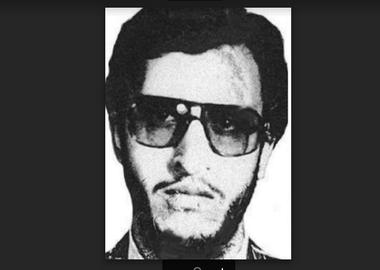



















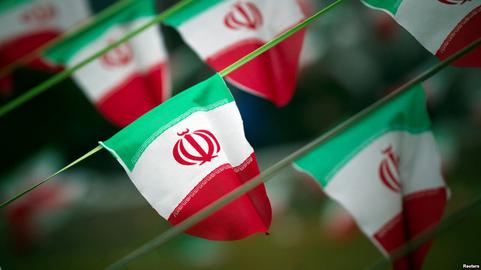
comments